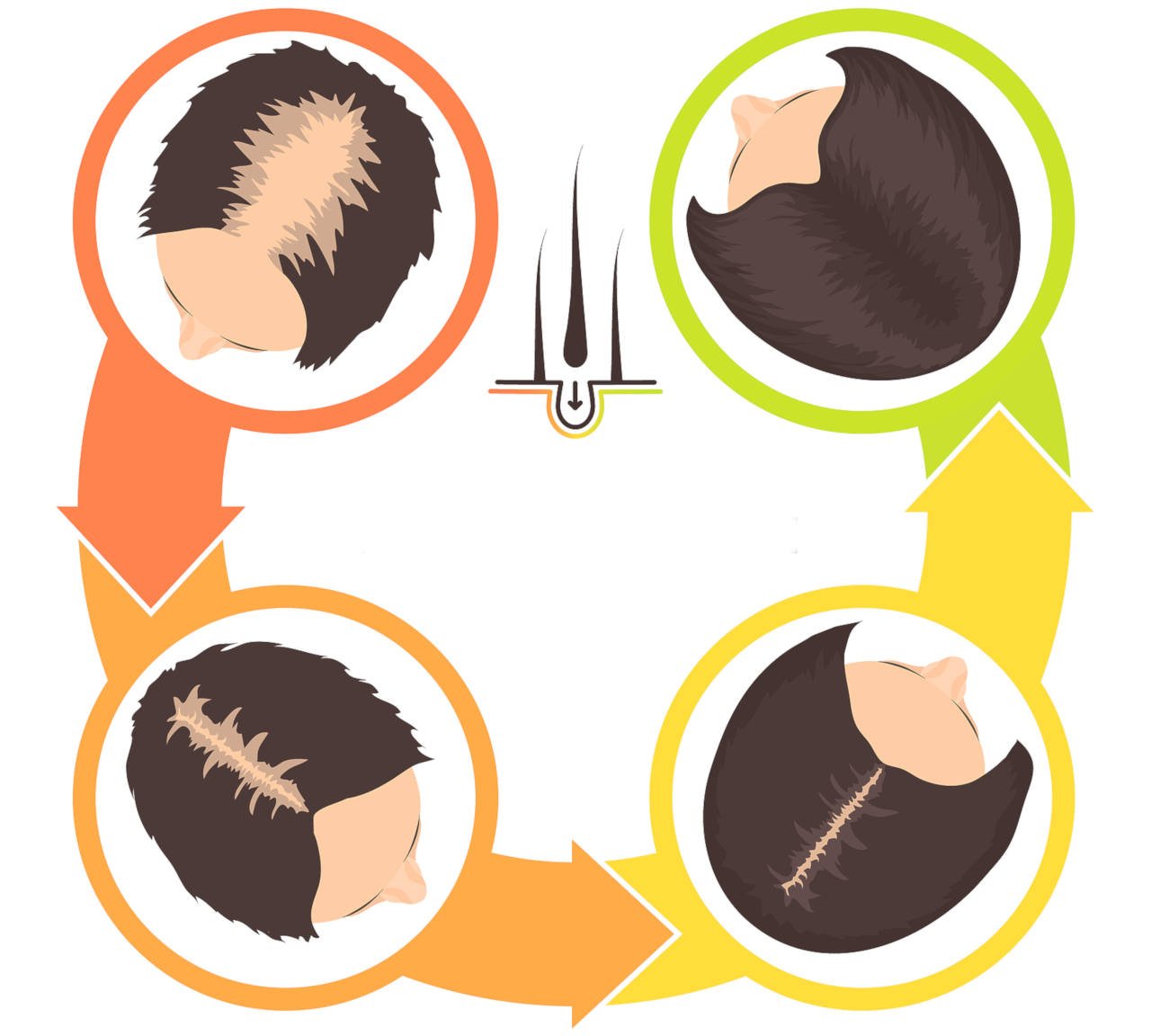
What are the Causes of Hair Loss After Surgery?
Hair loss is more common than you think with most people experiencing an episode of excessive hair shedding at least once in their lifetime. So many factors can lead to this problem that sometimes it’s difficult to identify the right cause – especially if the hair loss is only temporary.
Surprisingly, hair loss after surgery is also a common occurrence. Therefore we’re going to explain how anaesthesia can lead to telogen effluvium and how to restore your normal hair growth rate after your hair transplant surgery.
Summary
- What Causes Hair Loss After Surgery?
- What Happens to the Body During Surgery?
- Can Surgery Affect my Hair?
- How Can I Reverse Hair Loss After Surgery?
- Conclusion
What Causes Hair Loss After Surgery?

Having anaesthesia administered on the donor area and recipient area, followed by surgical procedures, can create a stress response in the body. This anaesthesia is provided as part of the follicular unit extraction (FUE) hair transplantation process which is used on all of our patients. In this way, the patient can develop telogen effluvium, i.e. the condition in which hair loss post surgery is triggered by a traumatic event or stress, be it physical or psychological.
Common causes of this type of hair loss are; childbirth, bouts of chronic diseases, low-calorie diets, certain drugs and emotional upheavals. Major surgery and anaesthesia belong to this group too.
What Happens to the Body During Surgery?
Our body sees surgical intervention and anaesthesia as a stressful event, primarily because many physiological processes are being put on hold. Anaesthesia can also temporarily alter the nervous system and hormone levels.
General anaesthetic blocks neural signals in the whole body which results in loss of consciousness. Only vital physiological functions, like breathing, continue to work. Many processes become suspended, such as digestion or light reflex in order to support the vital organs.
Is there any impact on hair growth?
Hair growth isn’t considered a vital function for the body and, hence, gets suppressed too. When in stress, the vital resources (nutrient elements, oxygen, etc.) travel to those areas of the body, where they are needed the most for the body to survive.
Since the hair is not an essential tissue, the body diverts the flow of nutrients from the hair follicles to other parts of the body when the anaesthetised area of the scalp is being transplanted. This, in turn, can lead to hair loss after surgery.
Shock loss from a hair transplant
Each hair follicle has nerves which transmit a distress signal during anaesthesia and surgery. This can make the follicles in the telogen phase shrink and forces them into the resting phase since they are temporarily cut off from the blood supply to the hair. As a result of this shock loss happens from the hair transplant.
2-3 weeks after the transplant you can lose hair due to shock. This arises as the transplanted hair begins a new anagen phase and the after 3-4 months hair growing will commence again. After 12-18 months you can expect to enjoy the full result of the transplant.
Can Surgery Affect my Hair?
Again, anaesthesia puts a lot of strain on the body. How does the body respond to that? By releasing cortisol, the ‘stress hormone’.
Cortisol causes the shrinkage of the blood vessels, meaning that the blood flow to the scalp becomes partially restricted. As a consequence, hair follicles are starved of nutrients and the hair growth slows down considerably.
And, since each hair follicle has its own adrenal gland where cortisol is secreted, the strands are affected by it directly after a stressful event.
Understanding the hair’s growth cycle
To understand how hair loss after surgery occurs, we need to have a look at the hair growth cycle. It comprises the following phases:
- Anagen phase or the growth phase lasts from 2 to 8 years. The duration is, however, preconditioned by genetics and differs from person to person. Around 80-90% of a healthy person’s hair is in the anagen phase at any given time.
- Catagen phase is a short period of transition that takes 2-3 weeks, during which hair growth stops and the hair gets cut off from the blood supply.
- Telogen phase is the time when hair follicles become inactive and the dead hair sheds. It is normal to lose up to 150 hairs every day.
When a person goes through a highly stressful event or is exposed to an external shock, up to 70% of the total hair can prematurely enter the telogen phase, followed by excessive hair shedding. Apart from that, stress can also extend the duration of the telogen phase.
How Can I Reverse Hair Loss After Surgery?

Telogen Effluvium is one of the forms of hair loss that is thankfully temporary condition that usually lasts up to 6 months. As a rule, this kind of hair loss does not require any specially targeted treatment. You can reverse hair loss after surgery by eliminating the source of the stress and by using medications that boost hair growth on your hair transplant surgeon’s recommendation.
- Introduce changes to your diet
- Manage your stress with meditation and physical activity
- Avoid tight hairstyles
- Try minoxidil or other hair loss medications
- Choose mild hair care products
Please note that the hair fall will not occur following the anaesthesia immediately but sometimes around 2-3 months after the hair grafts can fall out (this can again be explained by the duration of each phase of the hair growth cycle).
This makes it more difficult for the person to identify the real cause of hair thinning. Hence, if you notice excessive hair shedding, try to analyse your health history going a few months back.
Shop Dr. Balwi’s premium hair care products
Advanced technology meets luxury hair care in a highly nourishing and revitalising new formula for healthy hair! Our full hair care product range has been carefully designed to offer a comprehensive approach to hair loss care. Start your hair restoration journey today!
Conclusion
Anaesthesia can lead to hair loss after surgery, even though it’s rarely recognised as the culprit because hair loss only becomes visible several weeks to several months after the operation.
It is also believed that the chances of developing telogen effluvium after anaesthesia will depend on the type of anaesthetic used. However, no conclusive research has been done to back this up.
Analgesia and sedation put a lot of strain on the body. Such physical stress may induce hair loss in the following ways:
- Suspending the process of cell division in the hair follicles
- Inducing the release of cortisol
- Diverting the nutrient supply from the hair follicles
It is usually a temporary condition that does not require a targeted treatment plan. Nevertheless, the side effects can be managed with some medications, balanced nutrition and proper hair care.
Are you looking for the solution to your hair loss? Talk to our friendly team who can provide you with advice and answer any questions you have. Get your free non-binding hair analysis today!


